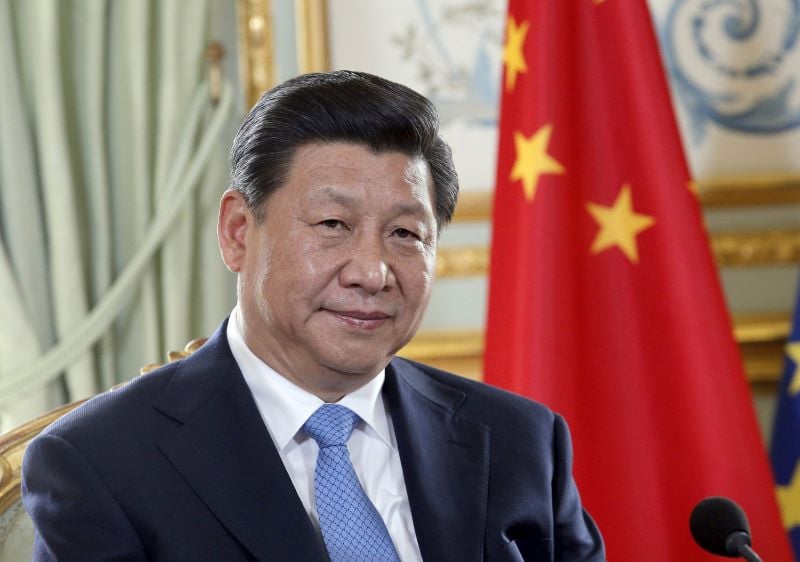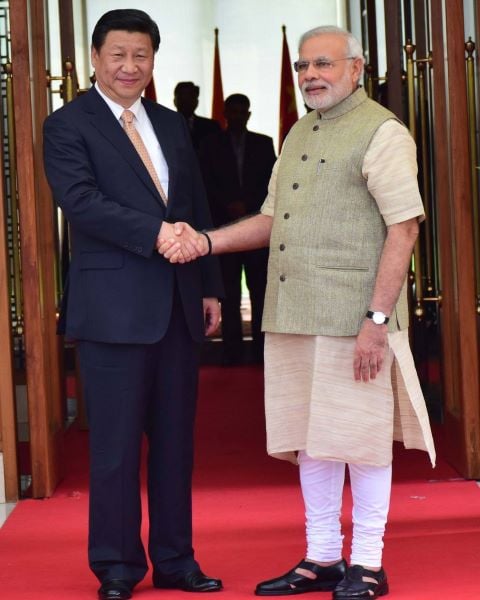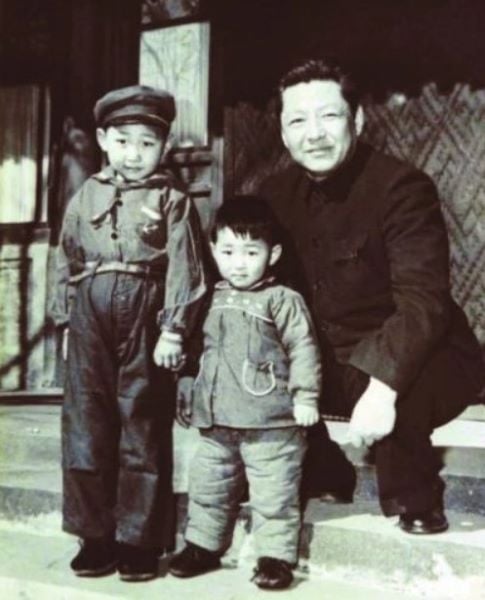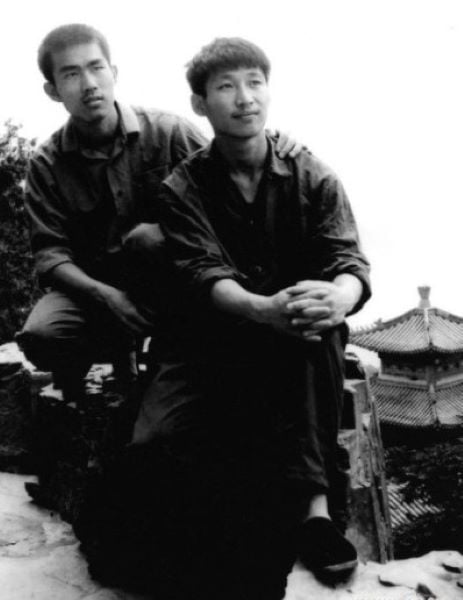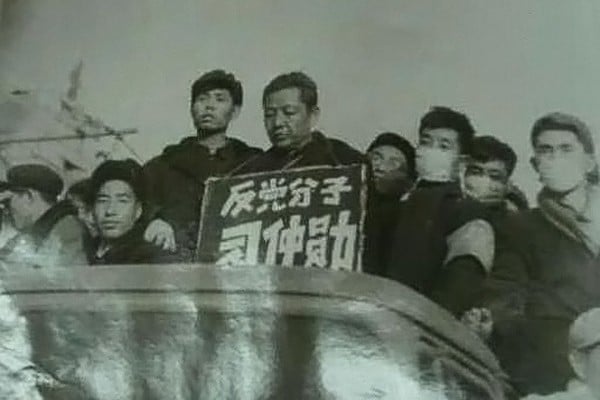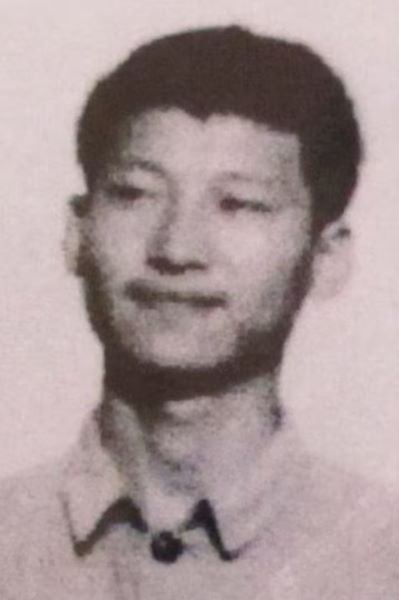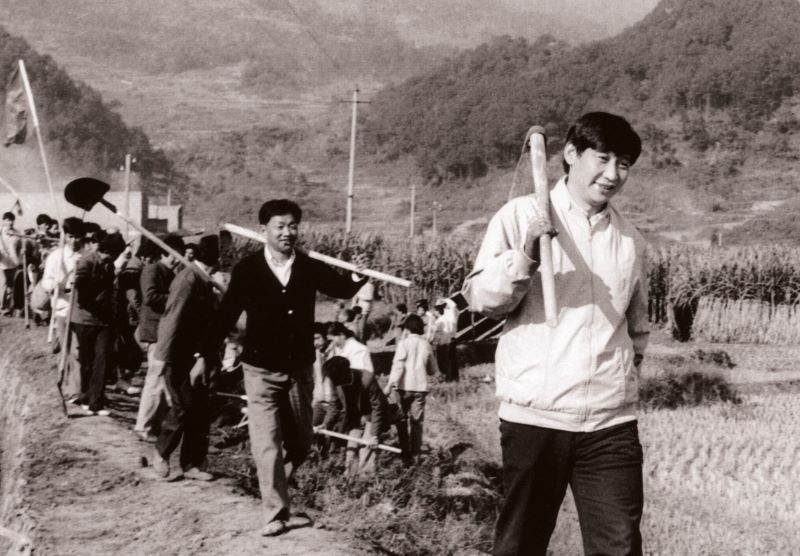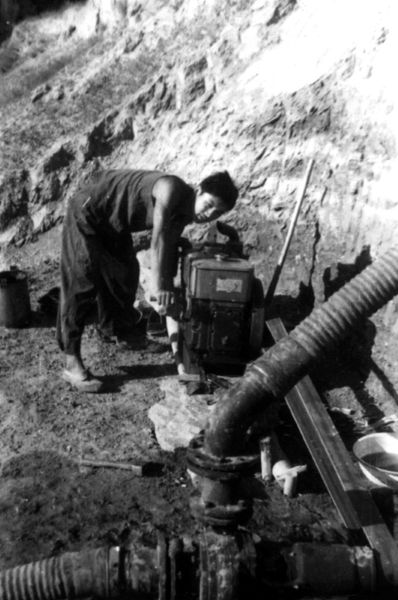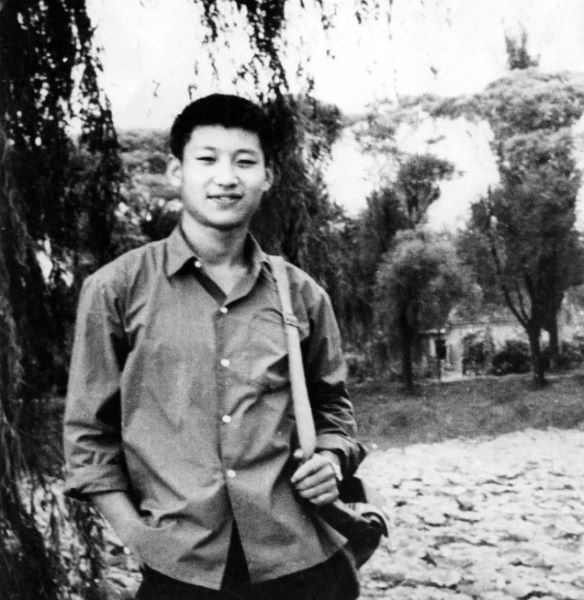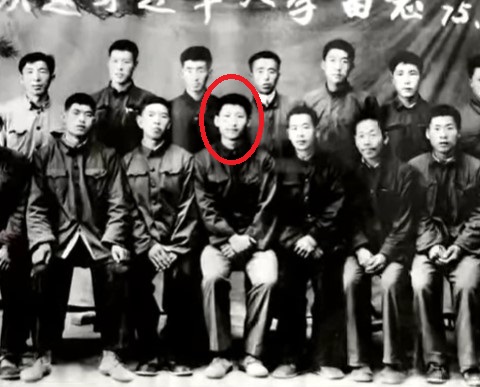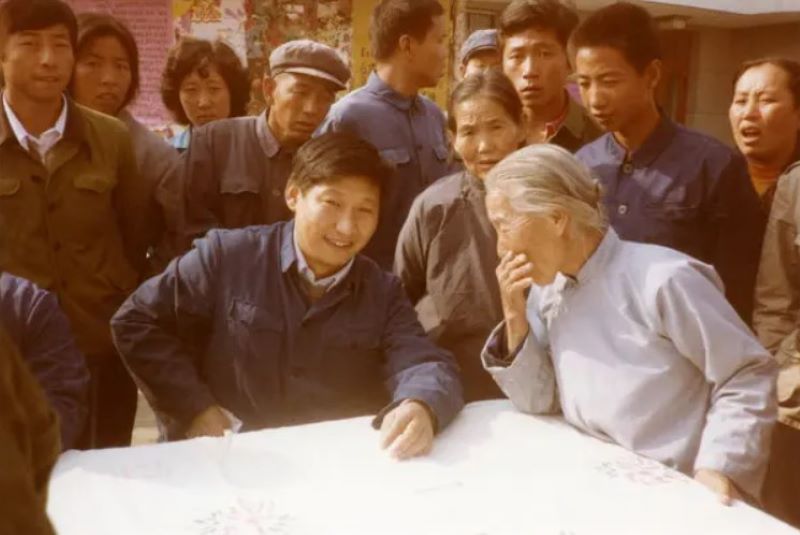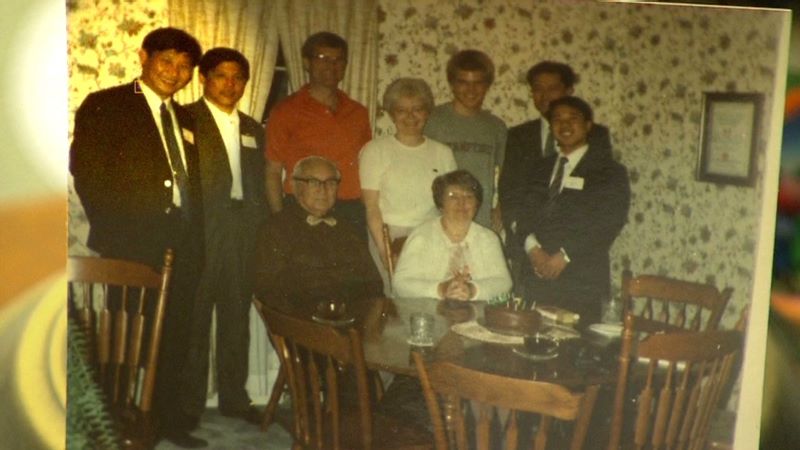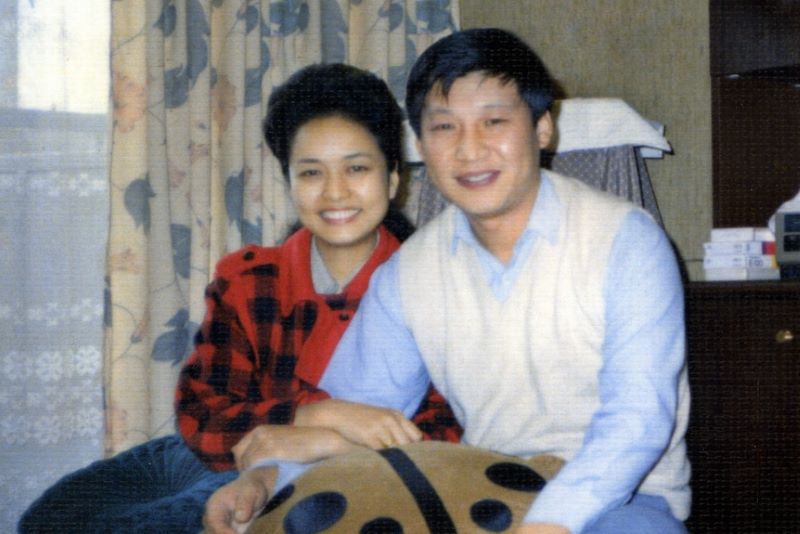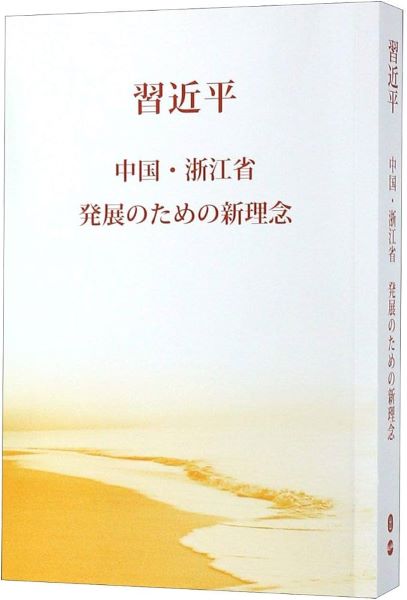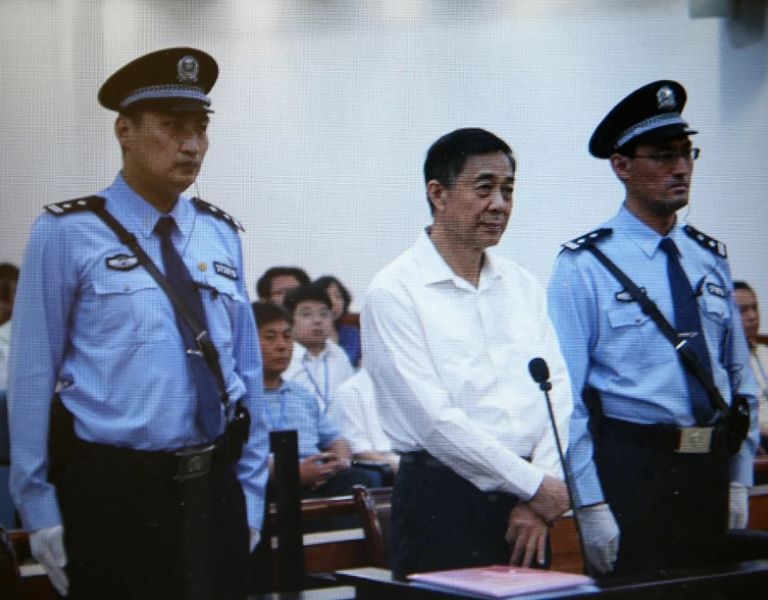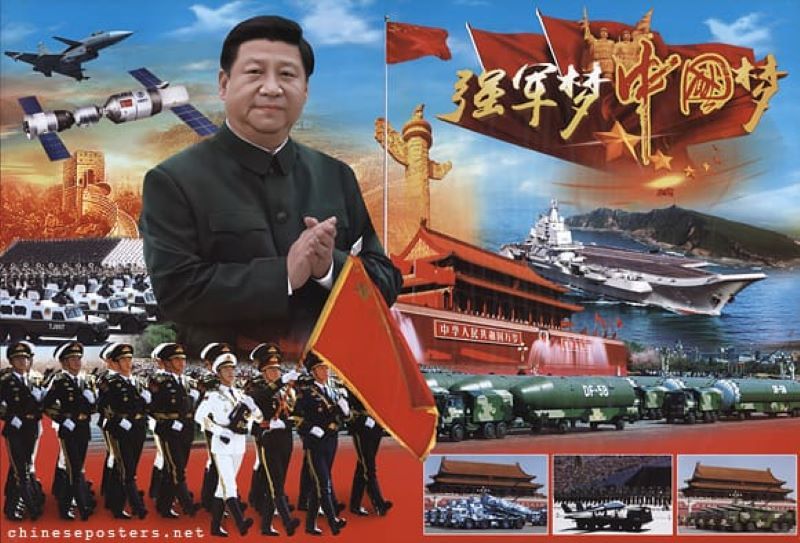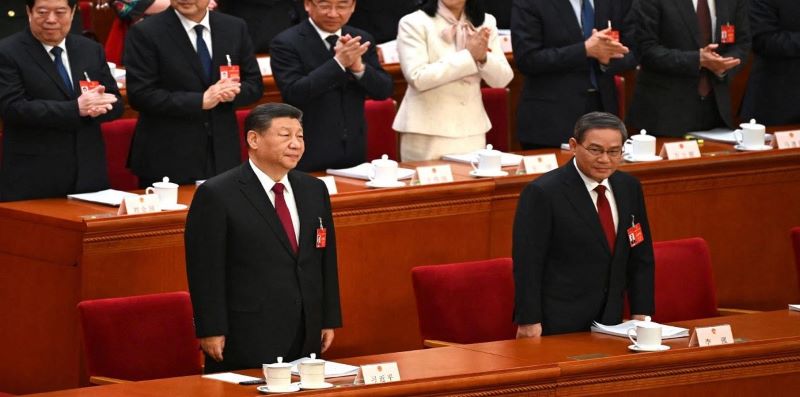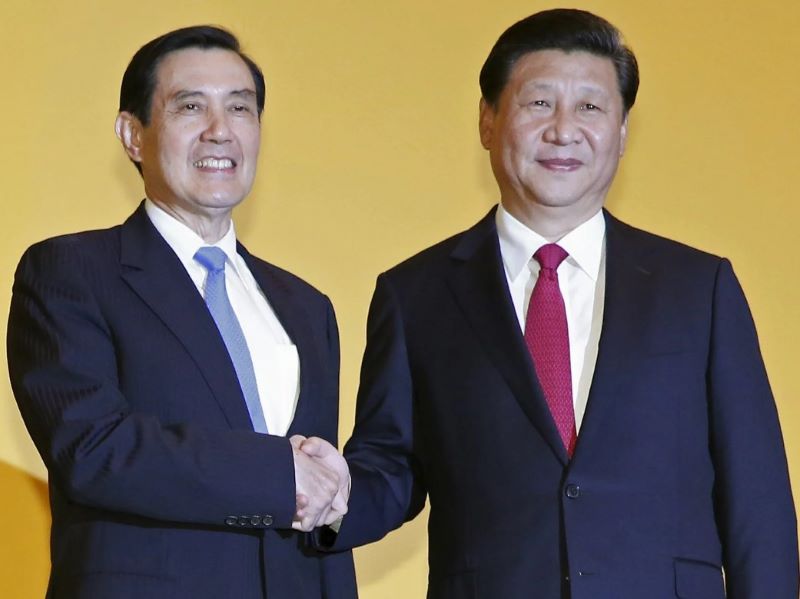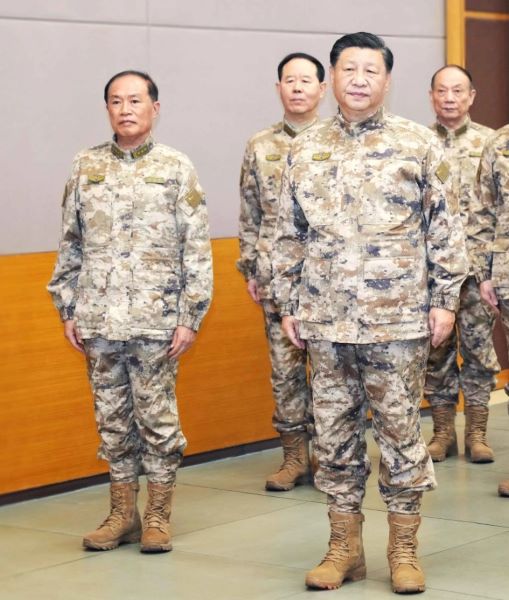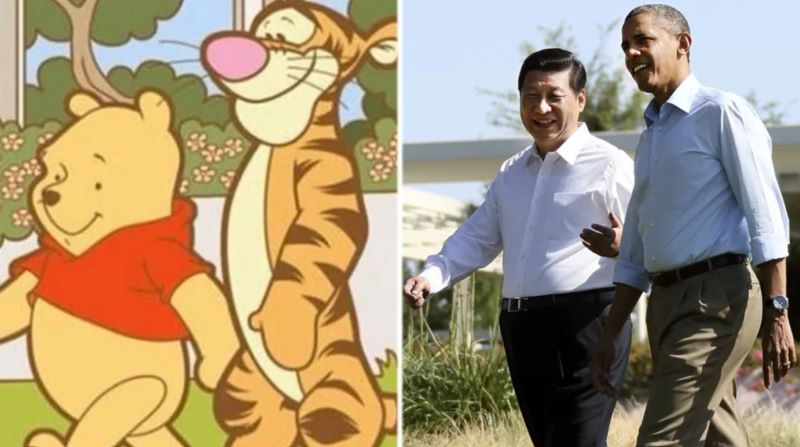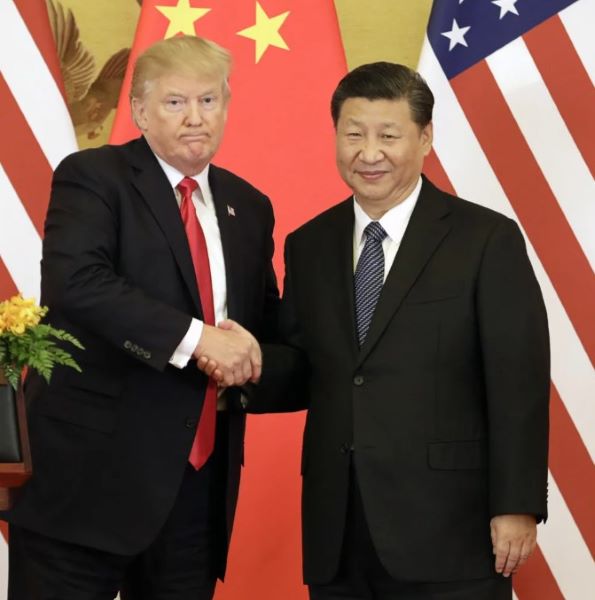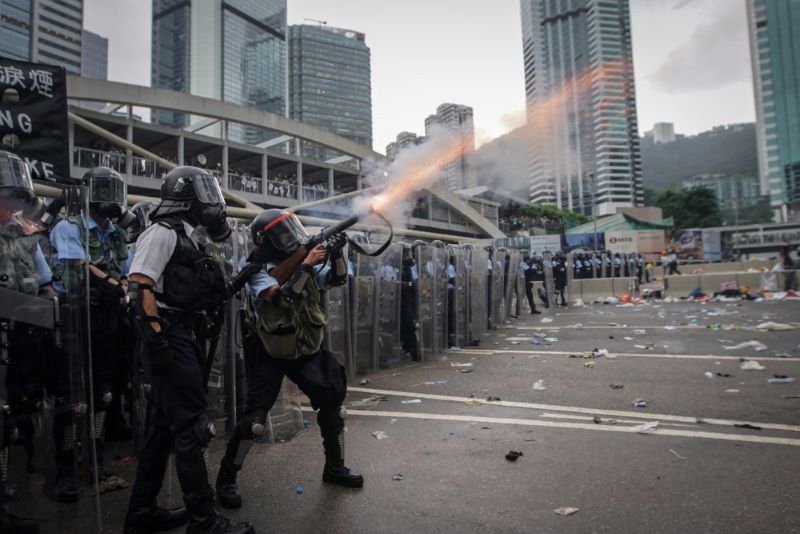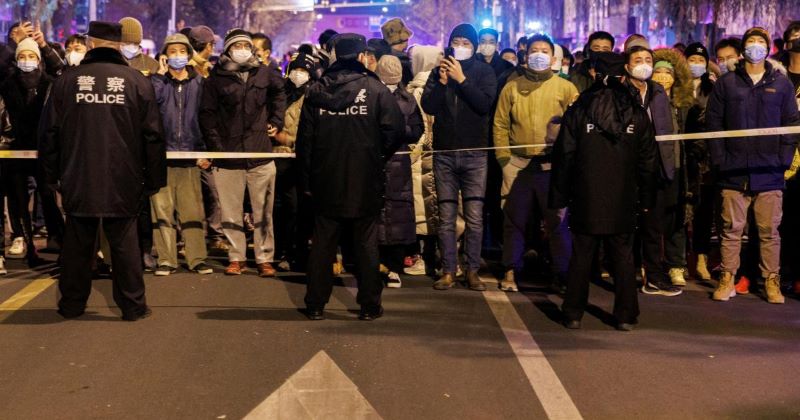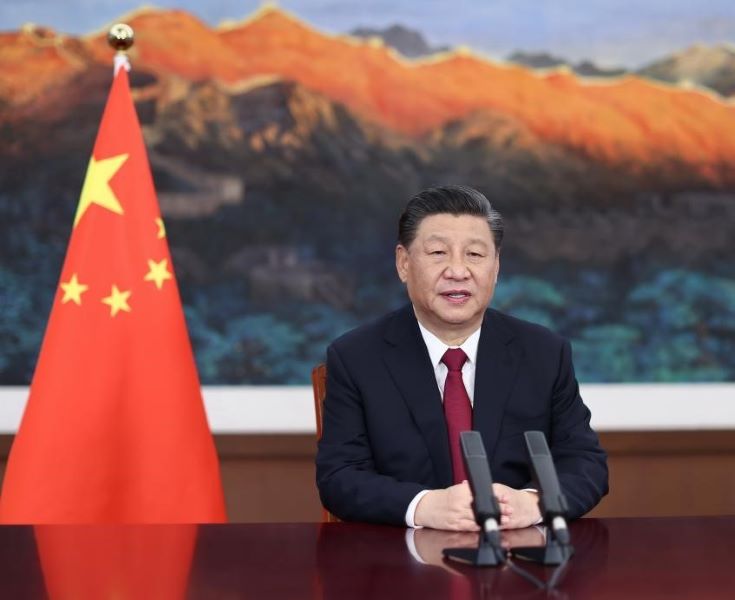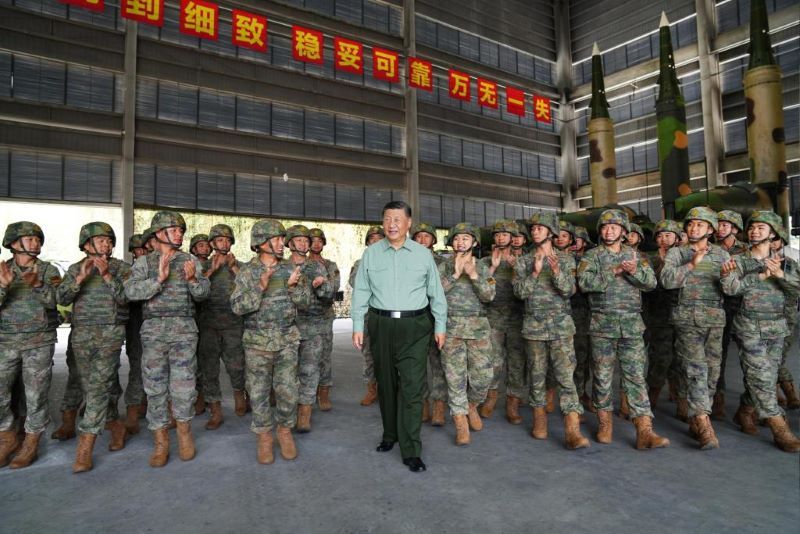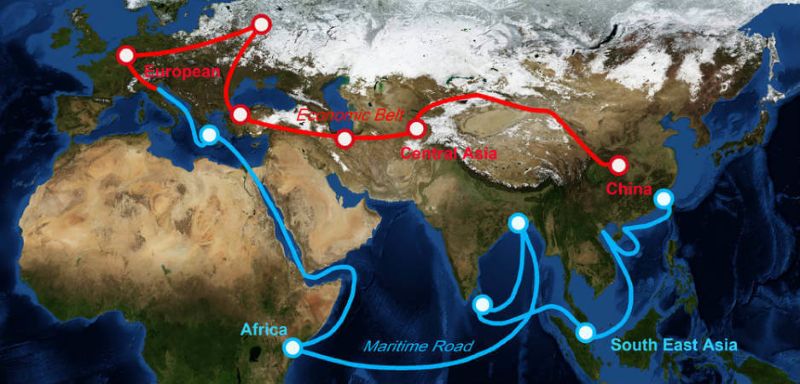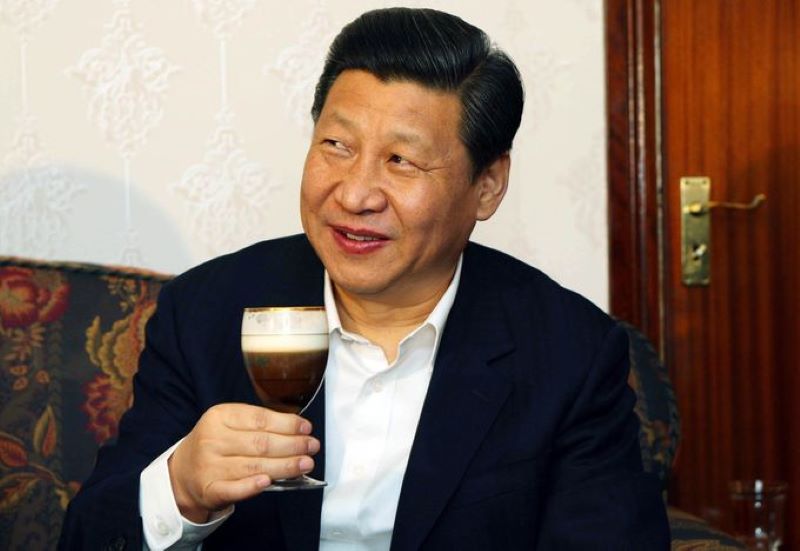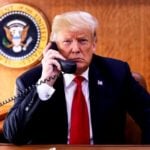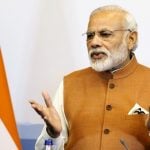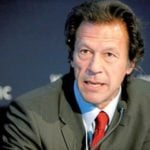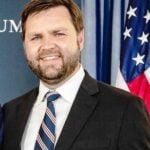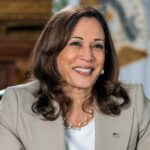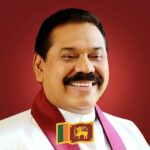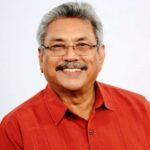Xi Jinping Height, Age, Wife, Children, Family, Biography
| Bio/Wiki | |
|---|---|
| Names Earned | • Emperor Xi • Chinese Napoleon • Xi the Protector • The Great Helmsman • People's Leader • Pilot at the Helm |
| Nickname(s) | • Xi Dada • Big Xi • Uncle Xi • Diao Jinping • Xi Winnie • Xi Baozi • Xitler • Exi • Princeling |
| Profession | Politician |
| Famous for | • Being the General Secretary of the Chinese Communist Party (CCP) • Being the Chairman of the Central Military Commission (CMC) • Being the Paramount Leader of China |
| Physical Stats | |
| Height (approx.) | 5' 11" (180 cm) |
| Eye Colour | Dark Brown |
| Hair Colour | Black |
| Politics | |
| Political Party | Chinese Communist Party (CCP) (1974-present)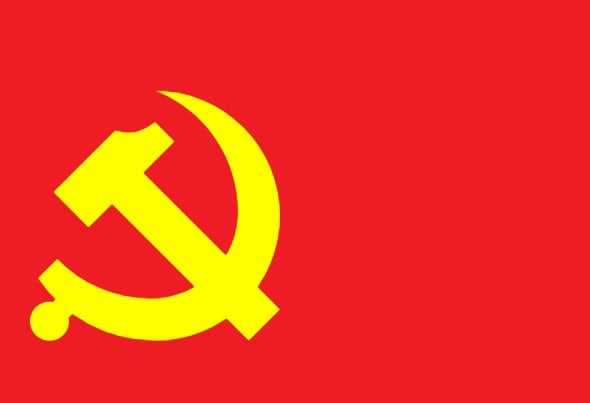 |
| Political Journey | • Served in the General Office of the State Council (April 1979) • Served in the General Office of the CPC Central Military Commission (April 1979) • Became Deputy Party Secretary of Zhengding County (25 March 1982) • Appointed a member of the Standing Committee of the CCP Xiamen Municipal Committee (1985) • Appointed as the Vice Mayor of Xiamen (June 1985) • Became the Secretary of the CCP in Ningde (September 1988) • Became the Head of the CCP in Ningde (1988) • Served as the Municipal Committee Secretary of the Fuzhou City (May 1990) • Elected as an alternate member of the 15th CCP Central Committee (1997) • Served in the office of Vice Governor of Fujian (1999) • Became Governor of Fujian (2000) • Served as Secretary of the Provincial Party Committee (2000) • Elected a full member of the 16th Central Committee (2002) • Served as Shanghai Party Secretary (March 2007 - October 2007) • Appointed to the nine-man PSC at the 17th Party Congress (October 2007) • Served as the First Secretary of the CCP's Central Secretariat (2007) • First-ranked Secretary of the CCP (22 October 2007 - 15 November 2012) • Served as Vice President of China (15 March 2008 - 14 March 2013) • Became the President of the Central Party School of the CCP (2008) • Elected as the General Secretary of the CCP by the 18th Central Committee (15 November 2012) • Elected as the Chairman of the CMC by the 18th Central Committee (15 November 2012) • Served as the President of China (14 March 2013 - present) • Appointed leader of the Central Cyberspace Affairs Commission (2014) • Appointed leader of the Central Leading Group for Military Reform (2014) • Named Commander-in-Chief of PLA's Joint Operations Command Center (21 April 2016) |
| Awards, Honours, Achievements | Awards & Orders • The Golden Olympic Order by the International Olympic Committee (19 November 2013) • Grand Cordon of the Order of Leopold by Belgium (30 March 2014) • Grand Cordon of the Order of the Liberator by Venezuela (20 July 2014) • Order of José Martí by Cuba (22 July 2014) • Nishan-e-Pakistan (21 April 2015) • Order of Abdulaziz al Saud by Saudi Arabia (19 January 2016) • Collar of the Order of the Republic of Serbia (18 June 2016) • Order for Promotion of Peace and Friendship by Belarus (29 September 2016) • Grand Cross Medal of Honor by Peru (21 November 2016) • Order of Saint Andrew by Russia (3 July 2017) • Grand Collar of the State of Palestine (18 July 2017) • Order of Zayed by United Arab Emirates (20 July 2018) • Grand Cross of the Order of the Lion by Senegal (29 July 2018) • Collar of the Order of the Liberator General San Martin by Argentina (2 December 2018) • Order of Manas by Kyrgyzstan (13 June 2019) • Order of the Crown by Tajikistan (15 June 2019) • Order of the Golden Eagle by Kazakhstan (14 September 2022) • Order of Friendship by Uzbekistan (15 September 2022) • Order of South Africa (22 August 2023) Key To The Cities • Muscatine, Iowa, United States (26 April 1985) • Montego Bay, Jamaica (13 February 2009) • Muscatine, Iowa, United States (14 February 2012) • San José, Costa Rica (3 June 2013) • Mexico City, Mexico (5 June 2013) • Buenos Aires, Argentina (19 July 2014) • Prague, Czech Republic (29 March 2016) • Madrid, Spain (28 November 2018) Honorary Degrees • Nazarbayev University (7 September 2013) • University of Johannesburg (11 April 2019) • Saint Petersburg State University (6 June 2019) • King Saud University (8 December 2022) |
| Personal Life | |
| Date of Birth | 15 June 1953 (Monday) |
| Age (as of 2024) | 71 Years |
| Birthplace | Beijing, China |
| Zodiac sign | Gemini |
| Signature | 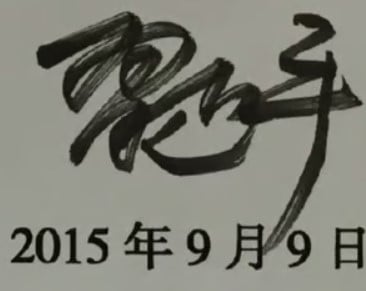 |
| Nationality | Chinese |
| Hometown | Beijing, China |
| School | • Beijing Bayi School • Beijing No. 25 School |
| College/University | Tsinghua University, Beijing (1975-1979) (1998-2002) |
| Educational Qualification(s) | • Chemical Engineering • Doctor of Jurisprudence |
| Religious Views | Atheist |
| Food Habit | Non-vegetarian |
| Address | 174 Chang'an Avenue, Xicheng District, Beijing |
| Hobbies | Reading, Writing |
| Controversies | Censorship and Degradation of Human Rights Since Xi came to power in China, he has forced the implementation of several laws that has led to the degradation of human rights in the country. He has also been criticised for suppressing the Uyghurs, a Muslim minority community in China, in the name of combating extremism and terrorism. He has also reportedly established several political correction camps, where inmates have undergo forced labour and political discourses. Xi's Expansionist Policies Xi is known for implementing foreign policies which are considered to be aggressive. Ever since he has come to power, the Chinese diplomats and military forces have indulged in an aggressive show of force. The PLA, on Xi's orders, have often indulged in limited military offensive against its neighbouring countries. On numerous occasions, he has instructed the PLA to be "battle ready" and be ready to attack Taiwan at a moment's notice. China also has engaged in aggressive naval patrolling in the South China Sea claiming parts of other countries' oceans and seas, violating the internationally accepted law of "The Freedom of Navigation." The Debt Trap Diplomacy As per sources, Xi does not only have ambitions to gain land but also gain dominance in the economies of poor countries. He has been criticized for increasing debt burdens on economically weaker countries and increasing China's geopolitical influence. Political and Military Purges Xi has often been criticised for targeting senior CCP politicians in an effort to eliminate threat to his authoritarian post as the General Secretary of the CCP. Reportedly, he has purged thousands of CCP members in the name of "corruption." In 2024, a report was released by the CIA in which it was claimed that Xi had ordered the removal and arrest of several senior army generals after a missile test failed. Handling of COVID-19 Xi has been criticised by several international health organisations for forcing the Chinese health industry to hide the actual data related to the virus. As per sources, Xi had threatened officials with legal action if they revealed any information to the public, which the CCP had not approved for release. Censoring History of China Under Xi's leadership, the government has sought to control the narrative surrounding Chinese history. This involves promoting a positive portrayal of the Communist Party's role in the country's development while censoring or altering aspects of history that are considered embarrassing or critical. Efforts have been made to downplay significant events such as the Cultural Revolution and the Tiananmen Square massacre. Disappearance of Jack Ma In 2020, during an event, Jack Ma, a Chinese billionaire politician, criticised Xi Jinping's policy on regulating banks and other financial institutes. Following this, Ma went missing for a brief period, and his $55 billion Ant IPO was suspended. He made a public appearance in 2024. Hiding Wealth In 2024, several reports surfaced on the internet according to which he had amassed a lot of wealth, which he tries to hide by investing in government-owned companies or by transferring assets and properties in the name of his relatives. |
| Relationships & More | |
| Marital Status | Married |
| Marriage Place | Second Marriage- Xiamen |
| Family | |
| Wife/Spouse | • Ke Lingling (m.1979-div.1982)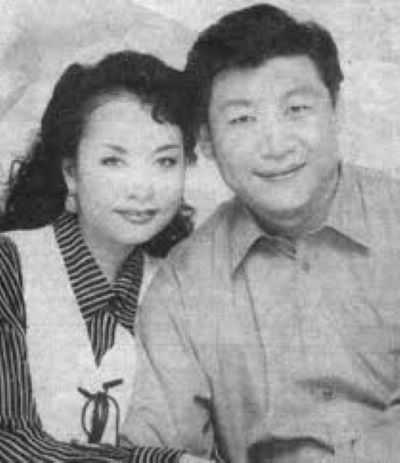 • Peng Liyuan (m.1 September 1987 - present) (politician, major general in the PLA Academy of Art) 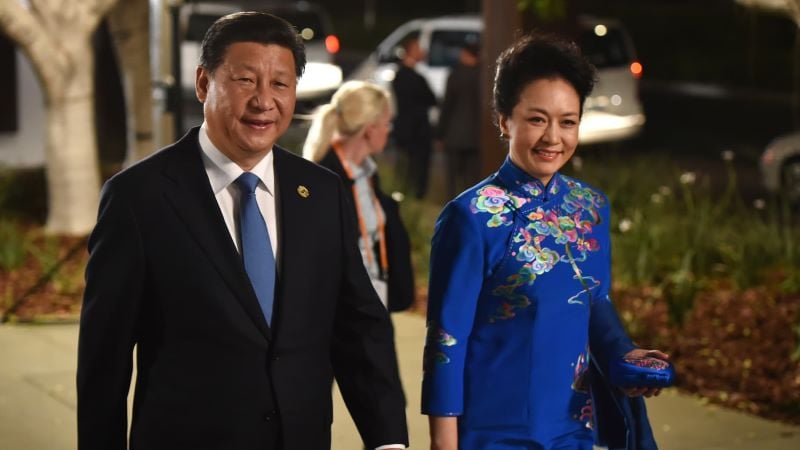 |
| Children | Son- None Daughter- 1 • Xi Mingze (born with Peng Liyuan) (psychologist, government official) 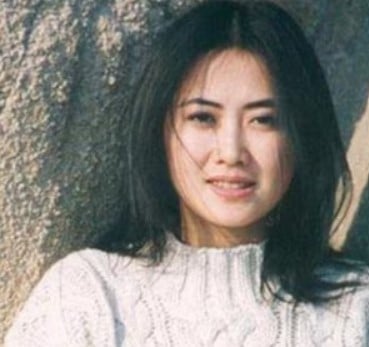 |
| Parents | Father- Xi Zhongxun (15 October 1913 - 24 May 2002) (politician)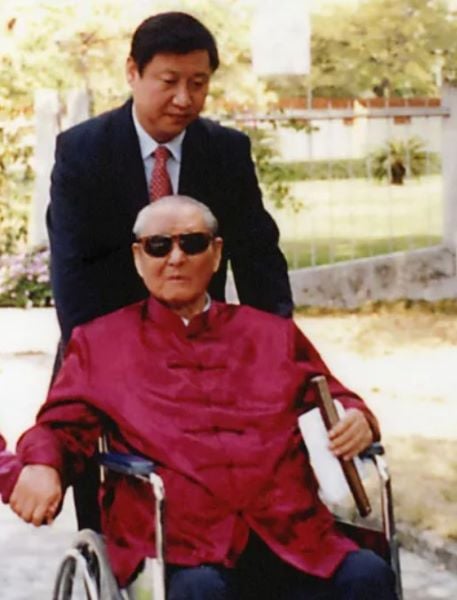 Mother- Qi Xin (author, member of the CCP) 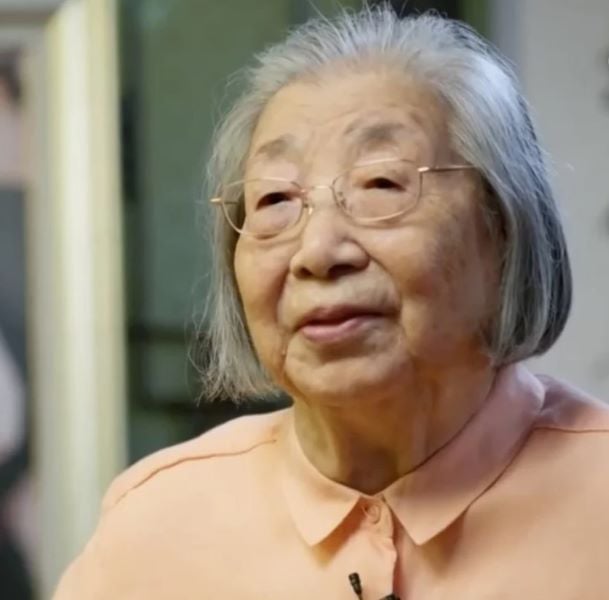 |
| Siblings | Brother- 2 • Xi Yuanping (president of the International Energy Conservation and Environmental Protection Association) 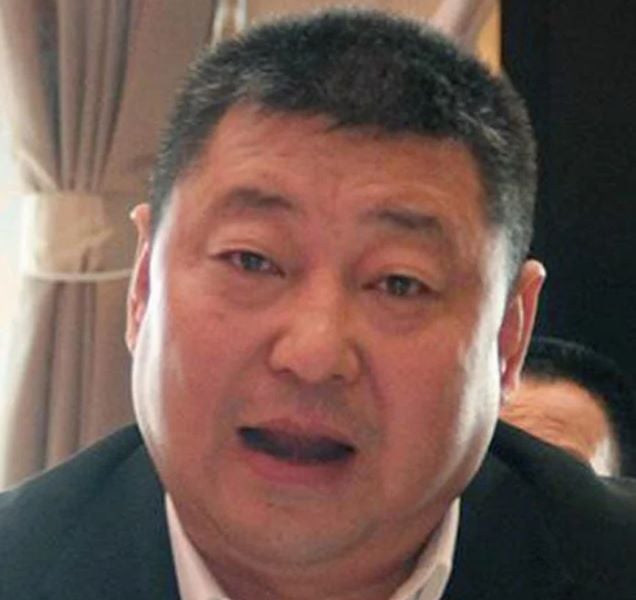 • Xi Zhengning (elder; died on 27 November 1998) 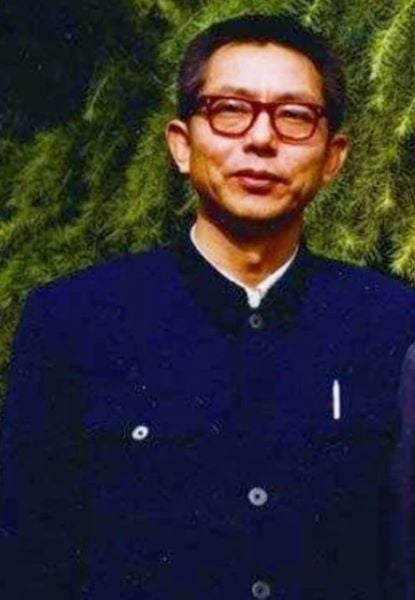 Sister- 1 • Qi Qiaoqiao (elder; politician, businesswoman) 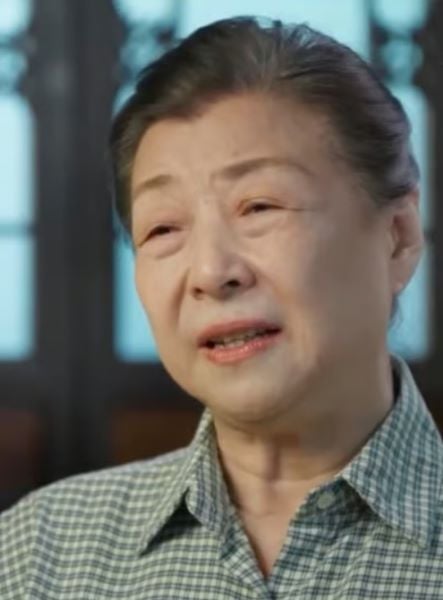 |
| Other Relatives | Brother-in-law- Deng Jiagui (a millionaire Chinese businessman residing in Canada) |
| Favourites | |
| Books | The Sorrows of Young Werther by Johann Wolfgang von Goethe (1774), The Red and the Black by Stendhal (1830), Eugene Onegin: A Romance of Russian Life in Verse by Alexander Pushkin (1833), A Hero of Our Time by Mikhail Lermontov (1840), War and Peace and Resurrection by Leo Tolstoy (1899), Quiet Flows the Don by Mikhail Sholokhov (1928), The Human Comedy by William Saroyan (1943), The Old Man and the Sea by Ernest Hemingway (1952) |
| Authors | Leo Tolstoy, Mikhail Sholokhov, Victor Hugo, Honoré de Balzac, Johann Wolfgang von Goethe, Jack London |
| Clothing | Dark Western suit with a red or blue tie |
| Food | Fish and chips, Braised chicken nuggets in brown sauce, Stir fried garlic sprouts with pork belly, Garland chrysanthemum with garlic |
| Song | Sailing the Seas Depends on the Helmsman (1964) |
| Money Factor | |
| Salary (approx.) | 11,385 Yuan (Since 2015) (as the General Secretary of the CCP) |
| Net Worth (approx.) | $707.2 million (as of 2024) [1]WION |
Some Lesser Known Facts About Xi Jinping
- Xi is the third child among seven siblings in his family.
- His affiliation with the Chinese Communist Party (CCP) began at an early stage as he used to attend events organised by the party with his party, who back then held an important post within the organisation.
- In the early 1960s, he enrolled at the Beijing 101 Middle School, where he came into contact with Liu He. The duo later became close friends and joined the CCP together. Liu, as of October 2024, is a close political advisor to Xi and has also served as China’s Vice Premiere.
- Xi relocated to Luoyang, Henan, in 1963 after his father was targeted in a political controversy and was forced to work at a factory as a labourer. He was beaten in a political prison forcing him to flee Beijing with his family.
- He lost one of his sisters in a political purge after she was killed by a group of communist students who attacked Xi’s home. She was reportedly paraded before the crowd by the attackers before being beaten to death.
- Later, his father was captured by the “Red Guards” who imprisoned him. They also forced Xi’s mother to denounce his father and call him an enemy of the Red Revolution.
- In 1968, aged 15, Xi wrote a letter to the Chinese authorities asking them to transfer him to another school in a much safer countryside.
- The next year, he and his family were allowed to leave and relocate to Yan’an, Shaanxi Province. In an article, Xi once mentioned that while staying in Yan’an, he realised the suffering of the poor as the area was very backward and hence got him into political movements.
- In mid-1969, he escaped to Beijing as he was unable to cope with the life of a backward area. However, a few months after coming to Beijing, he was taken into custody and termed as a deserter.
- Thereafter, he was sent to a work camp, where he laboured and dug ditches in the mountains. He was allowed to return to Yan’an after some months after his family requested the authorities to set him free and paid a bounty.
- Thereafter, he became the party secretary of the CCP’s Liangjiahe branch and was instrumental in instructing the villagers to dig more than 60 methane-generating pits. He also helped the villagers make cave houses for their protection. He lived in one such cave house for seven years.
- In 1973, he applied to become a full-time member of the CCP and move to Beijing once again; however, his request to temporarily blocked despite the village CCP heads, where he stayed for seven years, backing his request.
- One of the major reasons for blocking his request was the political persecution of his father in Beijing which would have posed a threat to Xi as well.
- Xi’s application was accepted at the beginning of 1974 by the CCP Yanchuan County Committee after the committee’s new members visited Xi’s village and recognised his capabilities.
- Owing to his leadership qualities, he was soon promoted to the post of Party Chairman of Liangjiahe.
- Thereafter, he visited Mianyang village in Sichuan to learn more about generating energy from biogas.
- To boost Liangjiahe’s economy, he implemented several policies which led to an increase in trade in substances such as plant flue-cured tobacco.
- He later went to Beijing, where he enrolled at Tsinghua University, on the recommendation of the CCP Yanchuan County Committee.
- At the university, he was referred to as a Worker-Peasant-Soldier student in the college due to his political and economic experience.
- After completing his college studies, Xi was posted to the CPC Central Military Commission in Zhending County, where he worked under the renowned Chinese political strategist and the then-Chinese Minister of Defence Geng Biao.
- During his tenure at the commission, he supported the villagers who were being overworked to meet the central government’s crop share quota. He wrote a letter to the central government requesting a waiver on their behalf.
- After that, the government issued a notice waiving 14 million kilograms of crop from the government’s share to reduce the burden on poor farmers.
- He is credited with devising farmer-friendly policies which resulted in a steady growth of their annual income from 148 yuan to over 400 yuan in 1984.
- During his leadership, the CCP formed a team to search for and recognize talented individuals from the local community in Zhending to strengthen the party. In 1984, the party set up 220 grassroots leadership teams and appointed 570 exceptional young individuals to serve in grassroots leadership roles.
- Since Xi was academically inclined, he also persuaded the senior party members in Beijing to establish a party cadre for intellectual scholars and academicians such as teachers. This led to him establishing more than 30 schools in the county, improving the literacy rate.
- Xi recruited many unorthodox people, who criticised the biases in the society. This received criticism due to the CCP’s left-centric ideologies at the time.
- Xi increased the number of personal advisors and wrote letters to people from different backgrounds to help him achieve his political goal.
- To reform the economy of Zhending, he employed the renowned Chinese economist Yu Guangyuan and formulated a two-step plan to revitalise the economy by shifting the rural economy to a semi-urban economy. He also laid more emphasis on increasing the quality and quantity of the livestock as well as personal hygiene by constructing public toilets.
- He also promoted the establishment of an economic system in which the villages and the cities worked in close coordination to meet the demand and supply of goods and services. This was achieved by his four economic principles.
- In the mid-1970s, Jinping went to Beijing to secure a permit for the farmers and merchants of Zhending to go to the capital and sell their produce in trucks. He did so because back then, the authorities did not allow cars and trucks from other parts of China to enter Beijing.
- In January 1984, he implemented a six-point format (a standard operating procedure) for the workers of the CCP in Zhending, which was later implemented by the central committee of the CCP.
- By the end of the same year, the industrial and farm yields of Zhending increased more than four times. This doubled the average income of the residents.
- Thereafter, he played an instrumental role in the reconstruction of the Buddhist Monastery Longxing Temple, which was damaged during the Red Revolution in China following the end of the Second World War.
- He then worked with the China Teleplay Production Center (CTPC) to establish its production house and centre near the province. At the same place, CTPC shot and aired China’s first TV show Dream of the Red Mansions in 1987.
- Xi’s popularity within the CCP grew after He Zai, the secretary-general of the Central Organization Department, presented his documented strategies for developing Zhending to other senior leaders in Beijing, including Wei Jianxing, the deputy head of the CCP Central Organization Department.
- In 1985, the CCP chose him out of all the senior members of the party to visit Iowa, the United States of America, to study how to increase the yield of corn.
- After returning to China, he was posted to the Development Committee in Xiamen, Fujian.
- At Fujian, he devised a policy of four principles which aimed at improving and strengthening the CCP from its grassroots.
- After becoming Mayor of Xiamen, he drafted policies for the improvement of the air corridor by assisting in founding the Xiamen Airlines. He also founded the now-famous Xiamen Economic Information Center and the Xiamen Special Administrative Region.
- Thereafter, he became a member of the committee that overlooked the cleaning of the Yundang Lake, which had gotten polluted due to the industrial boom in China.
- In 1987, Xi Jinping met his wife Peng Liyuan, who back then was living in Xiamen.
- In September 1988, he relocated to Ningde in Fujian, where he served as the Secretary of the CCP in the region.
- While working in Ningde, Xi started to maintain a log book, which was later published as a book titled Getting Out of Poverty.
- There, Xi Jinping was given the responsibility of revitalizing the city and its economy, which was one of the lowest among all the Chinese cities.
- In May 1990, the Central Planning Committee of the CCP ordered Xi to relocate to Fuzhou City, where he served on its Municipal Corporation’s committee.
- Xi Jinping was one of the politicians to acknowledge that Taiwan belonged to China. Therefore, in 1992, he, along with other prominent Chinese leaders, called for “one country, two systems,” a statement that has often been criticised by many.
- This notion was later adopted by the mainland CCP government.
- In 1997, he was appointed as an alternate member of the 15th CCP Central Committee.
- Xi Jinping realised the power of the semiconductor industry in the late 1990s. Therefore, as the Governor of Fujian, he visited Taiwan, the leading manufacturer of semiconductors, to bring investments into the province. This uplifted the private sector of the provincial economy.
- After resigning from his post as Governor of Fujian in 2002, he relocated to Zhejiang to take more central appointments within the CCP.
- His entry into national-level politics began in the same year when he was appointed as a full-time member of the CCP’s 15th Central Committee.
- He further gained prominence as an economist in Zhejiang after the economy of the province recorded exceptional growth of 14 per cent per annum.
- Xi Jinping devised policies which not only brought corrupt government officials into the limelight but also imposed heavy penalties on them. This led to him being perceived as a strong and capable leader in the eyes of Beijing. He was also interviewed by many national newspapers.
- After staying in Zhejiang for five years, Xi was sent to Shanghai, where he took over the leadership of the CCP from Chen Liangyu. Chen was reportedly forced out of the position by naming him as one of the collaborators in the social security fund scandal to make way for Xi.
- Xi often made headlines for observing a strict routine. Despite working at a high rank, he never took favours or benefits. As per sources, he once scolded members of the CCP for arranging a separate cabin in a special train to go to Zhejiang to hand over his responsibilities.
- After taking over the party leadership in Shanghai, Xi urged the party members to stop political persecution of the citizens. However, it is claimed that he ordered the persecution of many people who were connected to Chen Liangyu.
- Owing to his leadership skills, the Chinese government entrusted him with the planning of the 2008 Summer Olympics in Beijing.
- Later, he took over the Central Party School (CPS), where he worked on training the new cadre of the CCP. He created a new syllabus for the recruits. This curriculum was later adopted in the training institutes of the People’s Liberation Army (PLA).
- In August 2007, Xi Jinping published a book titled Zhijiang Xinyu. The book contains his political journey while he was in Zhejiang and Fujian as the head of the CCP.
- In 2008, after becoming the Vice Premiere (Vice President), he made his first official trip to the Democratic People’s Republic of Korea (DPRK), where he met Kim Jong Il.
- He had to cut short his visit to North Korea after the 2008 Sichuan earthquake. At Sichuan, he oversaw the rescue and reconstruction work undertaken by the government bodies.
- In 2009, he headed a committee of CCP politicians who were instrumental in implementing the 6521 Project under which the Chiese authority arrested many anti-Communist citizens in the name of “social stability.”
- In 2010, many political analysts began speculating that Xi Jinping would become the next Paramount Leader of the CCP and China. However, his ascend to power was challenged by Bo Xilai, whose social policies were considered to have outclassed Xi’s.
- On many occasions, Xi spoke in favour of Bo’s policies; however, all these were later taken off the record after Xi became the Paramount Leader of China.
- Bo fell from the favour of the CCP after he was implicated in the Wang Lijun incident in February 2012.
- Before being elected as the Paramount Leader of the CCP, Xi reportedly quit social media and “disappeared” from the public view.
- He reappeared following his selection as the party leader and informally the leader of China on 15 September 2012.
- Later, he came up with the term “The Chinese Dream,” a vision that combines national strength, social harmony, and individual prosperity, aiming to make China a leading global power while improving the lives of its people. It aligns closely with the Communist Party’s long-term goals and is seen as a guiding principle for the country’s development.
- It is claimed that after Xi took over, he laid a superior emphasis on militarism and economism, which many claimed to be a new chapter in China’s expansionism.
- Under his rule, the PRC has more aggressively asserted its claims on lands of the surrounding countries, including Taiwan and India.
- Xi later termed the country’s aggressive expansionist policies under the umbrella term “The Chinese Dream.”
- Xi is known for being down-to-earth. He prefers to travel in a minivan with his close aides, rather than in a limousine or large cavalcade. He also requests that law enforcement agencies avoid stopping traffic and causing inconvenience to the public when he passes through an area.
- He thereafter advised the Chinese diplomats in foreign countries to adopt a more aggressive stance while confronting challenges. This policy came to be termed the Wolf Warrior Diplomacy. Its main aim is the protection of the CCP from any international pressure or criticism.
- In March 2013, Xi was elected as the President of the CCP at the 12th National People’s Congress in Beijing, replacing Hu Jintao. In the voting, he received 2952 for, one vote against, and three abstentions.
- In the same year, Xi established the Shanghai Free Trade Zone. He then worked on devising policies to ease China’s strict Foreign Direct Investment (FDI) policies. This resulted in a 30 per cent increase in the profits in the Chinese private sector.
- Thereafter, he oversaw a committee which worked on drafting policies which allowed greater autonomy for the private sector.
- Momentarily, under his leadership, the relations between the US and China uplifted as Xi personally talked to President Barack Obama about cyber security. Soon, Obama announced that John F. Kerry would visit China on an official state visit.
- Thereafter, he came up with the Eight-point Regulation under which he changed the rules of engagement for the CCP members, especially the leaders.
- Later, he formed a committee, which he chaired, to look into the matters of corruption within the party. As a result, he initiated cases against prominent former CCP leaders such as Xu Caihou and Guo Boxiong.
- Xi was instrumental in the conception and beginning of the construction of the Belt and Road Initiative (BRI) in 2013. The project aims to expand China’s influence by investing in infrastructure such as roads, railways, and ports across Asia, Africa, and Europe. It is often viewed as an effort to reshape the global economic landscape and strengthen China’s position as a world leader.
- He is considered to have formulated a new form of economic dominance strategy called the Debt Trap. Under this, China offers loans to the already debt-ridden countries involved in the BRI with excessive interest rates. Through this policy, China has expanded its influence in Sri Lanka, by acquiring the Hambantota Port, Bangladesh, and the Maldives.
- As per the official data of the CCP, Xi demoted, purged, jailed, and fined more than 2 lac senior leaders by the end of 2014. Many saw this as an attempt to consolidate his power by removing dissenters within and outside the party.
- In February of the same year, he established the Central Leading Group for Cybersecurity and Informatization, under which the Cyberspace Administration of China was created. Later, the State Internet Information Office (SIIO) was incorporated into this organization.
- He went on to establish the National Supervision Commission, which was placed higher than the judicial bodies of China.
- This move was later widely criticised by famous international organisations like Amnesty International, who saw it as an attempt to violate the human rights of Chinese citizens.
- In 2014, Xi passed the Strike Hard Campaign Against Violent Terrorism after Uighur CCP dissidents conducted a terrorist attack in Xinjiang Province. This authorised the Chinese authorities to detain and surveil Uighurs.
- Thereafter, Xi passed an order under which he established an intra-party disciplinary department named the Central Commission for Discipline Inspection (CCDI), which was given autonomy from the functioning of the CCP to reduce political interference.
- Despite the order to keep CCDI out of politics, Xi, as per sources, kept the power to initiate criminal proceedings against implicated senior party members and ministers.
- In 2015, ever since the end of the Chinese Civil War, he became the first head of the Chinese CCP to visit Taiwan to visit.
- Under his rule, the censorship of the media increased manifolds and the authority of the CCP also increased over the media.
- In 2016, he asserted the power of the CCP over the media and journalists in a speech in which he said, “Media sponsored by the Party and government must hold the family name of the party.”
- In the same year, he took over the post of commander-in-chief of the Joint Operations Command Center of the PLA. Many political analysts later claimed that it was Xi’s first known public notion of establishing political supremacy over the military.
- The relations between China and Taiwan began worsening when Pro-America Tsai Ing-wen became the President of Taiwan.
- In 2018, he attended the China Cyberspace Governance Conference in which he emphasized strengthening the rules of engagement in cyberspace to root out the causes of online fraud and hacking. He also presented a bill which was passed in late 2018 under which strict punishment was handed out to cybersecurity offenders.
- He is also one of the few Chinese leaders to have called for “Internet Sovereignty” under which he banned Chinese citizens from accessing global platforms like Google and Facebook.
- In 2019, the Chinese government blocked all forms of Wikipedia from the Chinese internet space without giving any legal notice to the organisation.
- Later, the Xi-led administration passed a resolution in the parliament which allowed the arrest of Chinese social media users, especially the Chinese social media influencers. They were warned with a 3-year prison sentence should they fail to comply.
- Thereafter, the CCP, on Xi’s instructions, organised a seminar in Beijing, where they warned and instructed Chinese influential social media personalities to avoid discussing policies, defaming the government, or posting any content which could cause difficulties for the government.
- This government decision caused severe losses to Chinese social media companies like Weibo and WeChat.
- Xi not only worked on consolidating his power in the government and the party but also worked on uplifting his image and popularity among the common public. Soon after he became the leader of China, many books and cartoons were made based on him. He was also called Papa Xi, Uncle Xi, and Xi Dada; however, this name was scrapped in 2016.
- In the same year, he directed the government to carry out a population survey. The survey revealed that, as a result of the one-child policy, China faced a shortage of a capable labour force, with the majority of the population being senior citizens. Due to this, he abolished the one-child policy and introduced the two-child policy instead.
- In 2017, the government banned using Virtual Private Networks (VPNs) in China. All the VPN providers were given a deadline of February 2018 following which they were heavily penalized.
- In the same year, he proposed a bill requiring any politician in Hong Kong who wished to run in the region’s elections to swear allegiance not only to Hong Kong but also to China. This proposal resulted in violent protests in Hong Kong.
- In 2017, he established the Financial Stability and Development Committee, which was amalgamated into the Central Financial Commission in 2023.
- All the principles of communism and socialism of Xi, known as the Xi Jinping Thought on Socialism with Chinese Characteristics for a New Era, were included in the Chinese constitution and the manifesto of the CCP in 2018. His thoughts were presented for the first time at the 2017 19th National Congress of the Chinese Communist Party.
- At the same time, political tension escalated between China and Taiwan due to which Xi issued a warning to Taiwan and said,
We will never allow any person, any organisation, or any political party to split any part of the Chinese territory from China at any time at any form.”
- According to sources, to secure his position in the party, Xi Jinping has slowly and steadily replaced the CCP hierarchy with his trusted people from Fujian, Shanghai, and Zhejiang, where he worked extensively.
- In 2018, Xi proposed a plan which led to the removal of the limitation on the term limit of the President and the Vice President.
- In the same year, he presided over the National People’s Congress (NPC), which implemented the legislature under which a National Supervisory Commission (NSC) was established.
- The Central Leading Group for Comprehensively Deepening Reforms (CCDR) was converted into a committee by Jinping through a resolution in 2018. Through this, he implemented a “reform agenda” under which several “education camps,” commonly called the forced labour camps, were established.
- In 2018, he established the Central Propaganda Department and gave it the authority to make decisions on its own.
- In 2022, an international report surfaced in which it was claimed that after taking over as the General Secretary of the CCP, Xi has actively worked on reducing the influence of the Youth League Faction, also known as the Tuanpai. In this faction, young CCP members were directly recruited from the Communist Youth League (CYLC). Xi, while talking to the CCP senior members, reportedly said,
[The youth league] is not the bellwether of youth, and in fact, it is at the tail end of trends. How can it talk about uniting all our young people? … It can’t even keep up [with them]! [These cadres] can not talk about science, literature and art, work or life [with young people]. All they can do is just repeat the same old bureaucratic, stereotypical talk.”
- In November 2021, Xi held a meeting of the CPC Central Committee on the Major Achievements and Historical Experience of the Party over the Past Century in which he emphasized bringing changes to the history of the CCP which is taught to students and new party members.
- Xi Jinping received the highest share of votes in his political career in the 2022 CCP General Secretary elections. He became the second Chinese politician to be re-elected for three consecutive terms.
- According to sources, after Xi became the General Secretary, he forced many senior CCP leaders to resign from their seats in the Politburo Standing Committee (PSC) to allow politicians, whom Xi favoured, to become members of the PSC.
- The politicians from Zhejiang and Fujian were categorised into the New Zhijiang Army and Fujian clique.
- Xi received the title of Rénmín LǐNgxiù (People’s Leader) by the PSC; a name which earlier had only been given to Mao Zedong.
- Later, to liberalise the Chinese economy, Xi introduced the government guidance funds, a fund aimed at promoting a private-public sector partnership. As of 2024, the Chinese government has raised $900 billion.
- He later brought changes to China’s banking policy to allow Western banks’ controlled participation in the Chinese economy.
- Xi Jinping has been referred to as the cartoon character Winnie the Pooh by netizens across the globe. It started in 2013, when Xi visited the US, where a photo of him with Obama went viral following which they both were compared with Winnie and his best friend Tigger.
- In 2019, he visited the United States of America to discuss the rate of trade tariffs with US President Donald Trump.
- To enhance his control over national security issues, Xi, in the same year, created a National Security Commission, which faced criticism from political observers who viewed it as a move toward the de-institutionalization of China.
- On 14 May 2020, Xi introduced the Domestic-international dual circulation, commonly known as Dual circulation. This policy aimed at increasing the domestic production of goods and services in collaboration with foreign organisations and companies.
- Thereafter, he proposed an increment in the property tax to improve the situation of the debt-ridden property and real estate sector in the country. However, this decision of his met with resistance from the members of the CCP as well as the Politburo Standing Committee.
- In the same year, he instructed the Department of Finance to allocate $564 billion to the Research and Development (R&D) Department.
- He then presented the Made in China 2025 manifesto to boost the manufacturing sector. However, he dropped the notion after the US and Chinese trade situation worsened and the trade deficit between the two countries widened.
- In 2020, during an internal CCP meeting, Xi presented a manifesto seeking reforms in the judicial system to root out causes of corruption and deliverance of speedy justice. Therefore, he came up with the “Chinese socialistic rule of law.”
- To allow updating and amending the Chinese socialist constitution, Xi created the National People’s Congress Standing Committee in the same year.
- Thereafter, he formed several cross-jurisdictional circuit legal tribunals in different parts of China.
- During the 2019-2020 Hong Kong students protests, Xi advocated for the brutal police crackdown. It is claimed that the protests took place against the passage of a controversial bill which allowed the citizens of the region to be extradited to mainland China to stand trial for their involvement in anti-CCP activities.
- In 2019, Xi faced criticism for attempting to pressure Taiwan to renounce its independence from China and warning that military force could be used to unify Taiwan with China. He said,
We make no promise to renounce the use of force and reserve the option of taking all necessary means. We are willing to create broad space for peaceful reunification, but will leave no room for any form of separatist activities.”
- In the same year, a report was published by the Human Rights Watch (HRW) which claimed that the situation of human rights had declined in China and was lower than what it was during the Tiananmen Square crackdown.
- The relations between India and China deteriorated in 2020 after the Galwan Valley clashes which led to the deaths of several soldiers on either side. This resulted in the cease of diplomatic relations between the two nations.
- In the same year, to tighten his grip on Hong Kong and eventually Macau, he ordered the National People’s Congress (NPCSC) to pass a resolution that allowed the Chinese authorities to arrest dissenters in Hong Kong. He later also reportedly threatened the international community to not interfere in Hong Kong.
- He gave a public speech, accepting the rapid spread of the COVID-19 virus in different parts of China in January 2020, a year after it started spreading in 2019, after receiving criticism.
- Thereafter, to control the spread of the virus, he came out with a Zero-COVID policy. This policy was criticised by many economic think tanks as it damaged the economy and posed unnecessary limitations on the people of China.
- As people were forced to stay at home and quarantine there, massive protests erupted in China as a result of which China was forced to ease the regulations listed in the Zero-COVID policy.
- In September 2020, Xi Jinping proposed a carbon neutrality policy under which China is expected to reduce its carbon emissions to protect the environment. As per the government, if the emissions are cut short, it could reduce the global temperature from 0.2 – 0.3 degrees Celsius.
- In 2021, he brought in a three-child policy; however, this policy too was discarded and the penalty which was earlier imposed on the families for exceeding the size prescribed by the government was removed.
- In March of the same year, his statement targeting the economic decline of the West, especially the European Union (EU), sparked outrage on social media.
- He later targeted the Western countries over their response to tackling COVID-19 in their nation.
- Thereafter, he came up with the Four Confidences under which he talked about Confidence in Path, Confidence in Theories, Confidence in System, and Confidence in Culture. This was later called the Historical Confidence and inserted into the manifesto of the CCP.
- In April 2022, Xi was invited to attend the Boao Forum for Asia, where he spoke of the Global Security Initiative (GSI), which aims at bringing Chinese influence into countries where economic growth is restricted due to internal conflicts.
- In August of the same year, Xi Jinping established the National Security Commission to arrest political dissenters and “re-educate” in the political camps.
- Later, it was rumoured that he had been placed under house arrest after the PLA attempted a coup. However, later, it was proved to be fake news.
- Soon after, the Chinese government renounced the Sino-British Joint Declaration, which was signed in 1984 and listed the claws under which China could administer the special region.
- In 2023, Xi Jinping put forward the plan to develop a new hi-tech city called Xiong’an New Area near Beijing. It is expected to be completed by 2050.
- He then ordered the government to crack down on Jack Ma’s companies by forcing them to sell shares after the latter criticised Xi and his repressive policies.
- To increase the decision-making capabilities of the government, Xi Jinping established numerous Central Leading Groups (CLC) and supra-ministerial steering committees and empowered them to bypass the decision-making structures of the government.
- Xi Jinping later passed a resolution according to which the power to make decisions related to the economy was shifted from the premiere of the country to the president.
- In March 2023, he ordered the establishment of the Central Financial Commission (CFC), which would work on making financial goals for the finance institutions; however, they were placed under the control of the CCP.
- To address the allegations of suppressing human rights NGOs in the country, Xi Jinping established the Social Work Department intending to provide a platform for interaction between the CCP and the concerned authorities.
- In certain sectors, Xi worked on and passed resolutions in the politburo that tightened the control of the CCP on institutions. This included placing the People’s Bank of China (PBoC) under a CCP-controlled regulatory body.
- To make the People’s Liberation Army (PLA) a world-class military, Xi Jinping proposed drafting a stronger civil-military-political nexus. For this, he created the Central Leading Group for Military Reform.
- He later gave a speech in which he became the second leader after Mao to assert political control over the army. He has often spoken in favour of keeping political control of the armed forces as he believes that if the party gives up on control of it, the downfall of the CCP will begin.
- Thereafter, he passed a proposition according to which the total number of troops serving in the PLA was to be cut from 2.3 million to 2 million. This was done to save money from pay and pension and divert that saved amount to the technological growth of the military.
- Soon after, he reduced the theatre commands from seven to five. Many military experts have claimed that this could severely impact the efficiency of the PLA owing to its lack of operational and active war experience.
- He then ordered the establishment of two new arms of the PLA, i.e., the Strategic Support Force and the Joint Logistics Support Force.
- Later, news began surfacing that Xi had sidelined all the experienced PLA generals and had personally taken over the command of the armed forces, which he shall continue to do so even in the case of a war.
- Since Xi has taken over the CCP, the money spent on the Chinese military and doubled; from $100 billion in 2012 to $230 billion in 2023.
- Under his leadership, the People’s Liberation Army Navy (PLAN) became more powerful than the British Navy for the first time as it added more submarines and other attack crafts into its inventory.
- He then sanctioned the $590 million for the construction of the first Chinese Navy’s overseas base in Djibouti; this was named as People’s Liberation Army Support Base.
- Xi Jinping has often been criticised by the international community for his stance on nuclear weapons. He has often called for increasing the nuclear arsenal of the PLA Strategic Forces. According to some estimates, the total number of nuclear warheads in China could increase from 400 to 1500 by 2030.
- China has increased its alliance with the Russian Federation under Xi Jinping. In 2023, Xi and Putin met in Moscow, where they both supported their joint Global South vision, which aims at enhancing their military and economic influence in Southeast Asia.
- Under his leadership, China has become more aggressive with its neighbours over border disputes. To counter India’s growing influence in the Indian Ocean Region (IOR), Xi Jinping has proposed a strategy to encircle India by gaining control of ports in Bangladesh, Sri Lanka, Pakistan, the Maldives, Seychelles, and Myanmar under the Maritime Silk Route Initiative.
- This strategy, employed by the Chinese Communist Party (CCP), is commonly referred to as the “String of Pearls.” It also includes encircling India through China BRI.
- Thereafter, while giving a speech at the UN, he famously referred to fields of space, deep sea, polar regions, the Internet, nuclear safety, anticorruption, and climate change as “new frontiers.”
- Later, he tasked the law enforcement agencies to prepare a detailed profiling of each Chinese citizen, especially the ones living in Beijing and other metropolitan cities.
- He also instructed the authorities to install circuit cameras in public areas with technology to identify the citizens and their social security numbers.
- Xi has often voiced his opinion of abolishing the autonomy given to Hong Kong and integrating it with mainland China; however, the CCP Politburo has often rejected this opinion.
- His efforts such as the construction of the Hong Kong–Zhuhai–Macau Bridge and establishing the Greater Bay Area for trade have led to a sharp decline in the anti-CCP and anti-China protests in Hong Kong.
- This is evident with the publication of a local Hong Kong political document, The Practice of the ‘One Country, Two Systems’ Policy in the Hong Kong Special Administrative Region, which included the political and economic aspects of the Chinese government. The document also asserted China’s “comprehensive jurisdiction” over the region.
- In 2024, news began circulating that he had suffered a stroke.
- Xi is considered to be a very secretive person and has rarely made a public appearance. As per sources, he likes to manage all the aspects of governance and sometimes, the orders he gives are unclear as a result of which the low-ranking CCP officials have to interpret his words.
- Xi is considered to be different in the way of governing from his predecessors. He likes to carefully read the order drafts and ensures that his recommendations on them are sent within hours of receiving them.
- To improve the functioning of the CCP cadre, he has personally drafted a “Two Yes, Six Nos policy.”
- In April 2024, the former Japanese Ambassador to China stated that Xi instructed members of the Communist Party of China (CCP) to engage in “self-criticism” to appear more appealing to the public. Moreover, Xi has concentrated power within the government rather than decentralizing it.
- Xi is an admirer of the writings of the Chinese philosophers Kong Qiu and Han Fei, whose principles Xi has tried to amalgamate into the CCP.
- As per sources, Xi has often supported Mao’s views of including politics in art, a matter considered to be controversial in China itself. He claimed that the reason for supporting the notion is for national rejuvenation.
- He has also issued orders to the art industry in China to not “exaggerate society’s dark side” for profit and to “tell China’s stories and spread Chinese voices to strengthen the country’s international communication capacity.”
- Despite his stand on including politics in art, Xi has often asked the CCP to amend its manifesto to revive the ancient Chinese art and literature, which the party has often criticised.
- He has often faced criticism from international connoisseurs for merging Maoist culture with traditional Chinese art forms. However, Xi has defended it by claiming it to be a part of “The Chinese Dream.”
- He has also spearheaded the reuse and revival of Hanfu, a second-millennium BCE Chinese cultural dress.
- He drinks alcohol occasionally.
- Xi has developed strategies to expand Chinese influence in the Southeast Asian corridor. In response, the United States, Japan, Australia, and India have formed the Quad (Quadrilateral Security Dialogue). This multilateral collaboration includes not only joint military operations in the South China Sea but also cooperative economic efforts.
- In 2024, the Cambodian government named a ring road in Phnom Penh Xi Jinping Boulevard to honour the relationship between the two countries.
- Xi Jinping has penned numerous research papers. Some of the popular ones are Theory and Practice on Modern Agriculture (1999), A Tentative Study on China’s Rural Marketization (2001), On Propaganda and Ideological Work of Communist Party (2020), On History of the Communist Party of China (2021), and The Governance of China: Volume Four (2022).
References/Sources:

